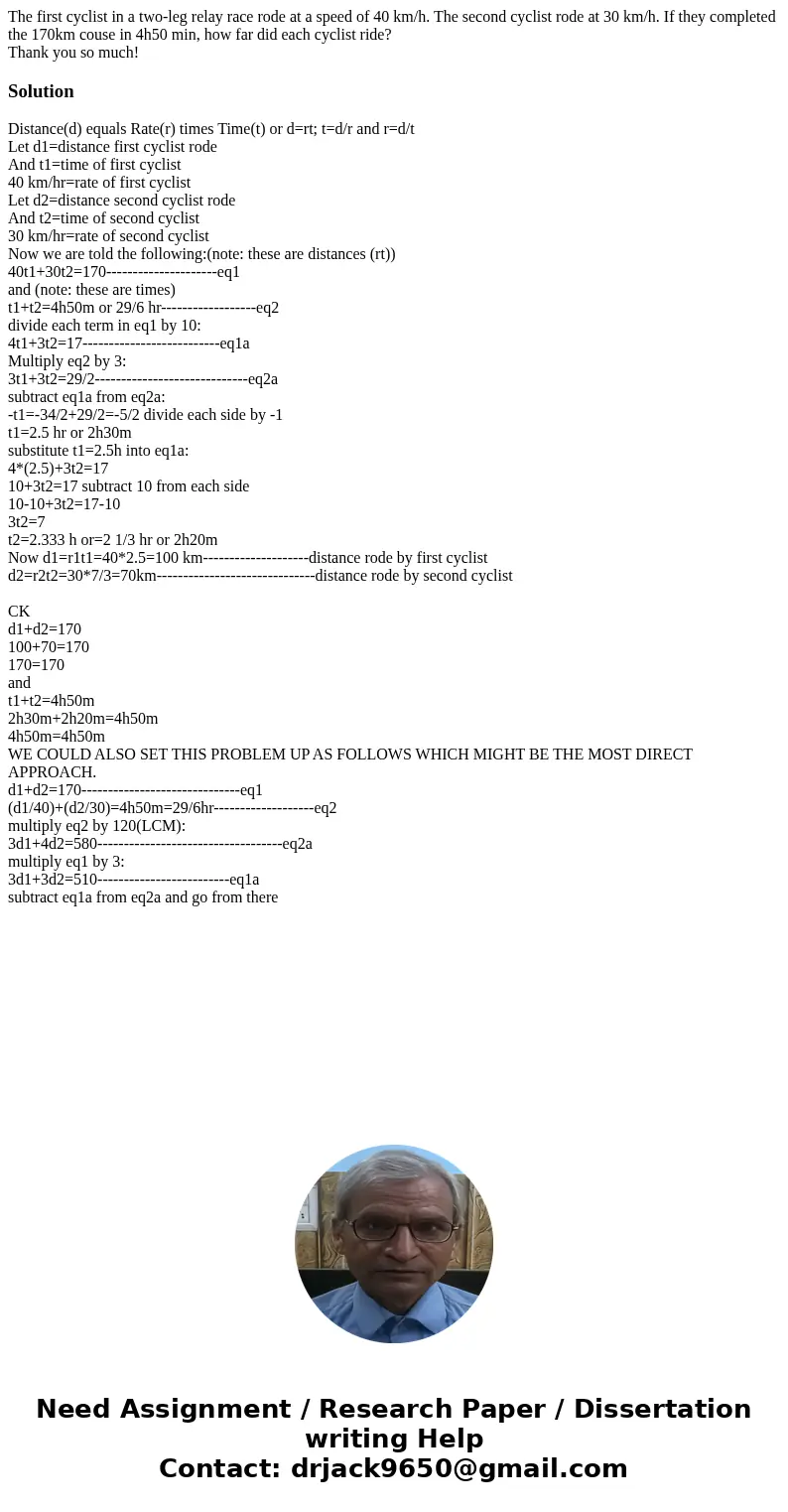The first cyclist in a twoleg relay race rode at a speed of
The first cyclist in a two-leg relay race rode at a speed of 40 km/h. The second cyclist rode at 30 km/h. If they completed the 170km couse in 4h50 min, how far did each cyclist ride?
Thank you so much!
Solution
Distance(d) equals Rate(r) times Time(t) or d=rt; t=d/r and r=d/t
Let d1=distance first cyclist rode
And t1=time of first cyclist
40 km/hr=rate of first cyclist
Let d2=distance second cyclist rode
And t2=time of second cyclist
30 km/hr=rate of second cyclist
Now we are told the following:(note: these are distances (rt))
40t1+30t2=170---------------------eq1
and (note: these are times)
t1+t2=4h50m or 29/6 hr------------------eq2
divide each term in eq1 by 10:
4t1+3t2=17--------------------------eq1a
Multiply eq2 by 3:
3t1+3t2=29/2-----------------------------eq2a
subtract eq1a from eq2a:
-t1=-34/2+29/2=-5/2 divide each side by -1
t1=2.5 hr or 2h30m
substitute t1=2.5h into eq1a:
4*(2.5)+3t2=17
10+3t2=17 subtract 10 from each side
10-10+3t2=17-10
3t2=7
t2=2.333 h or=2 1/3 hr or 2h20m
Now d1=r1t1=40*2.5=100 km--------------------distance rode by first cyclist
d2=r2t2=30*7/3=70km------------------------------distance rode by second cyclist
CK
d1+d2=170
100+70=170
170=170
and
t1+t2=4h50m
2h30m+2h20m=4h50m
4h50m=4h50m
WE COULD ALSO SET THIS PROBLEM UP AS FOLLOWS WHICH MIGHT BE THE MOST DIRECT APPROACH.
d1+d2=170------------------------------eq1
(d1/40)+(d2/30)=4h50m=29/6hr-------------------eq2
multiply eq2 by 120(LCM):
3d1+4d2=580-----------------------------------eq2a
multiply eq1 by 3:
3d1+3d2=510-------------------------eq1a
subtract eq1a from eq2a and go from there

 Homework Sourse
Homework Sourse